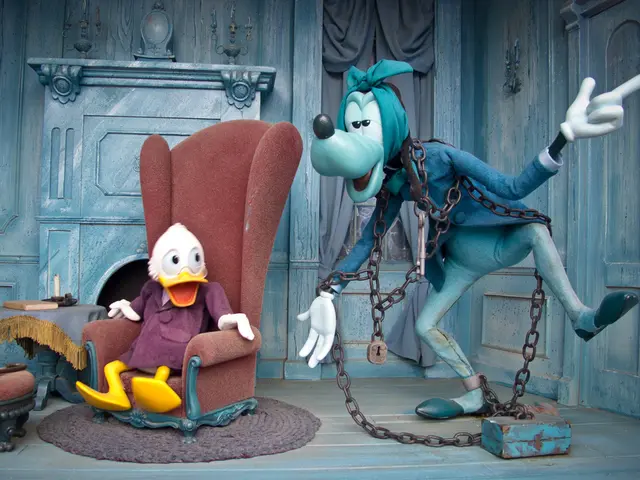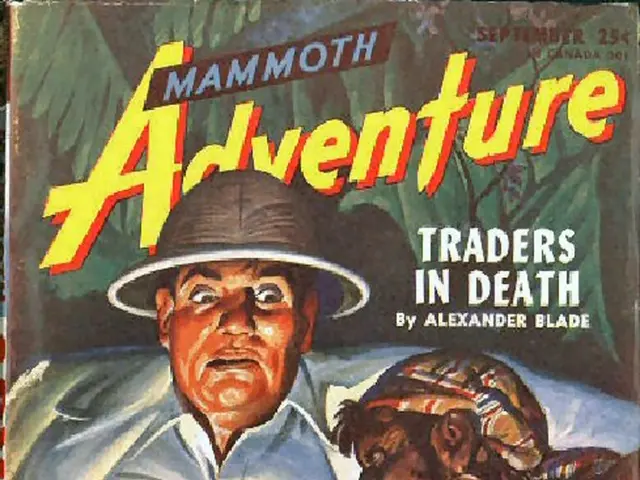Guidelines for Identifying and Approaching a Suitable Editor
Seeking a Freelance Editor for Your Self-Published Book
A professional editor can significantly enhance your writing by providing a fresh perspective, correcting numerous typos and grammar errors, and aiding in refining your manuscript's vision. Collaborating with a good editor can make your book as strong as if you were working with a publishing house.
The process of finding an editor differs between traditional publishing and self-publishing. Most editors employed by major publishers only accept submissions that have already been represented by an agent. Once the agent sells the book to the editor, the editor will guide the author through the steps of the process, aiding with developmental edits and line edits, all at no cost to the author.
If self-publishing or choosing to work with an editor prior to seeking representation, the responsibility lies with finding the right type of editor and deciding on the appropriate cost.
Finding the Right Editor
Depending on the state of your manuscript, you may need various types of book editors. Professional editors typically focus on one area of the editing process, such as:
- Developmental editors, also known as Story Coaches, focus on big-picture editing. They can help you with story structure, character development, timeline consistency, and overall coherence.
- Line editors pay close attention to sentence structure and phrasing, ensuring smooth sentence flow and proper word choice.
- Copy editors and proofreaders ensure the manuscript is free of typographical errors, grammatical inconsistencies, and inaccuracies. They are most effective in providing that final polish before publishing.
After determining which editor you need, research is essential to find the ideal editor for your manuscript.
Locating an Editor
Publishing house editors who accept non-agented submissions can be found on websites like Manuscript Wish List. Similar to agents, they list specific criteria they are seeking in a book, and submissions must comply with their requirements. These editors should be contacted once the manuscript is ready for submission.
When seeking freelance editors, start by compiling a list of potential candidates at platforms like Reedsy, Editorial Freelance Association, or through recommendations from other writers. Once you have your list, consider the following questions:
- Do they offer a sample edit?
- Will the sample demonstrate their editing skills and compatibility with your writing style?
- What are their costs, and do they charge by the word, page, or hour?
- Are they willing to sign a contract that outlines the scope of work, deadlines, and payment terms?
A sample edit is crucial when choosing a freelance editor. It allows you to assess their editing style and quality without incurring unnecessary costs. Remember to request "free" samples, as the purpose is to find the right editor for you rather than paying for their work.
Choosing the Right Editor: Questions to Ask
Don't settle for the first editor you find. A contract is essential, as it protects both parties and outlines their respective responsibilities in detail. A reputable freelance editor will always be willing to sign a contract.
Another significant consideration is whether they provide a sample edit, which they should. This may vary in what they offer - some may edit a specific number of pages, use a certain word count, or select a particular manuscript section to edit.
A sample edit can reveal much about an editor's skill, editing style, and compatibility with your work. It is essential that their edits make sense, providing valuable suggestions rather than attempting to rewrite your work entirely.
The cost of editing services varies significantly. Consider the value of a well-edited manuscript, balancing your budget while ensuring a skilled and experienced editor who can elevate the quality of your self-published book.
Finding the appropriate editor for your self-publishing project is crucial, as it can greatly impact the quality of your book. You may need different types of editors, such as developmental editors for big-picture editing, line editors for sentence structure refinement, copy editors for grammar and typo corrections, or proofreaders for that final polish before publication.
When searching for a freelance editor, it's essential to review their samples to evaluate their editing skills and compatibility with your writing style. A contract is necessary to outline the scope of work, deadlines, and payment terms, ensuring a professional and fruitful collaboration that results in a strong self-published book.







